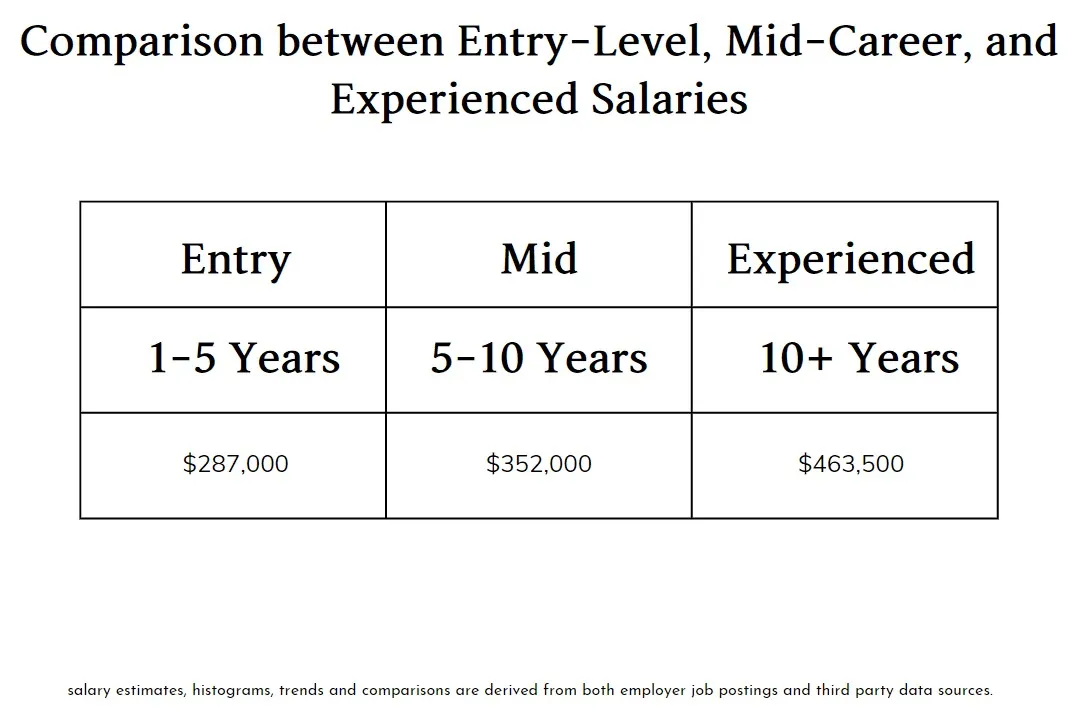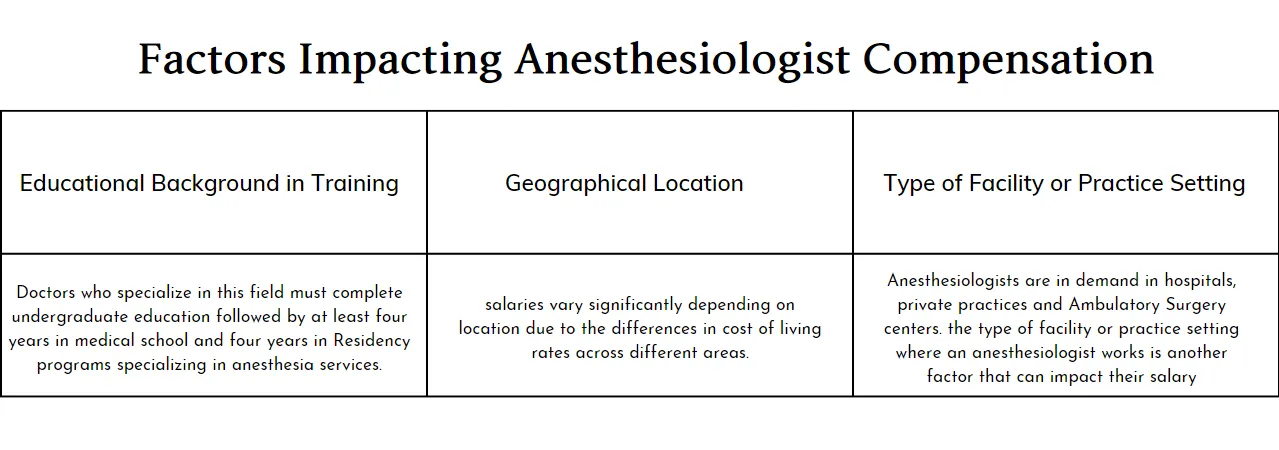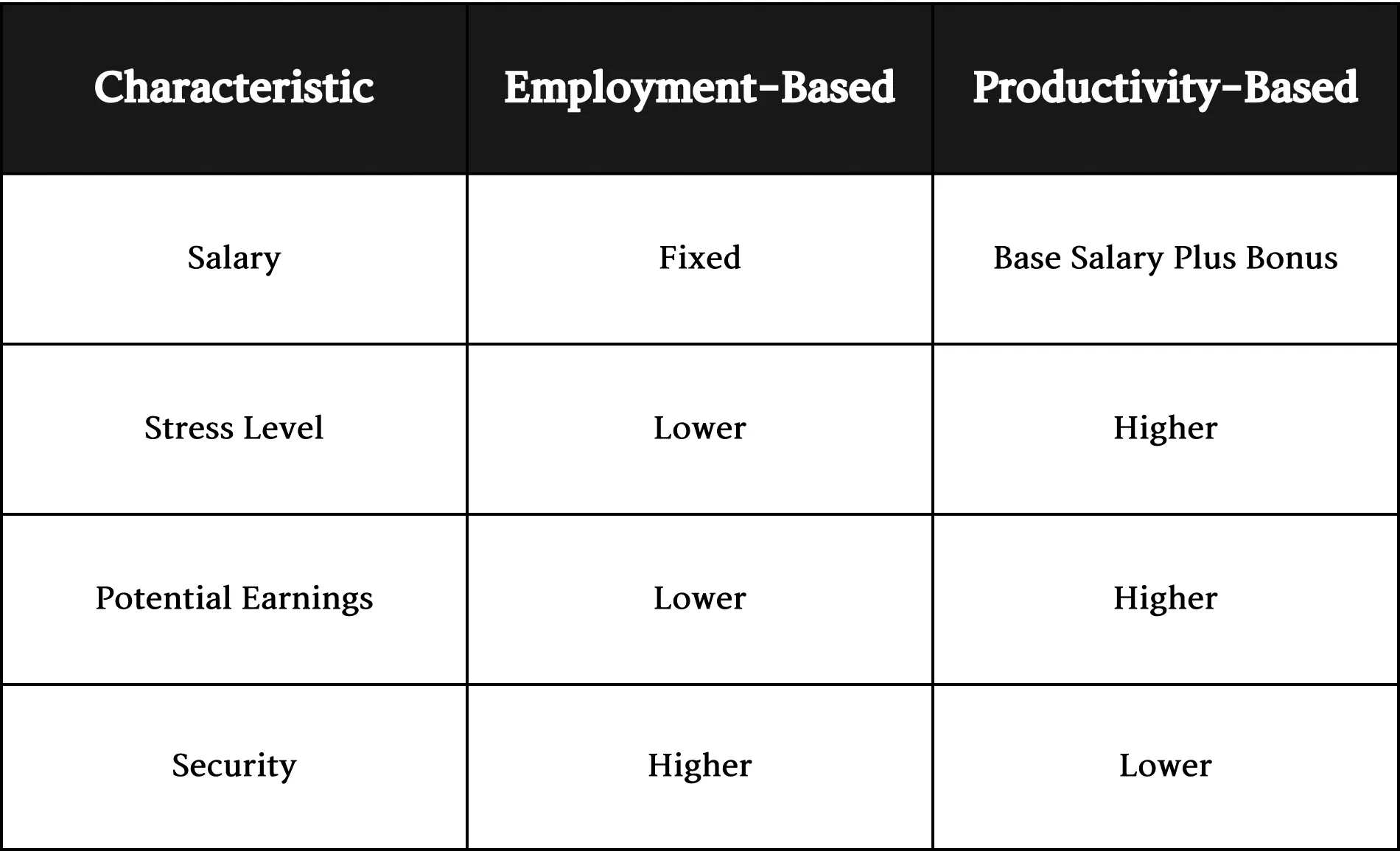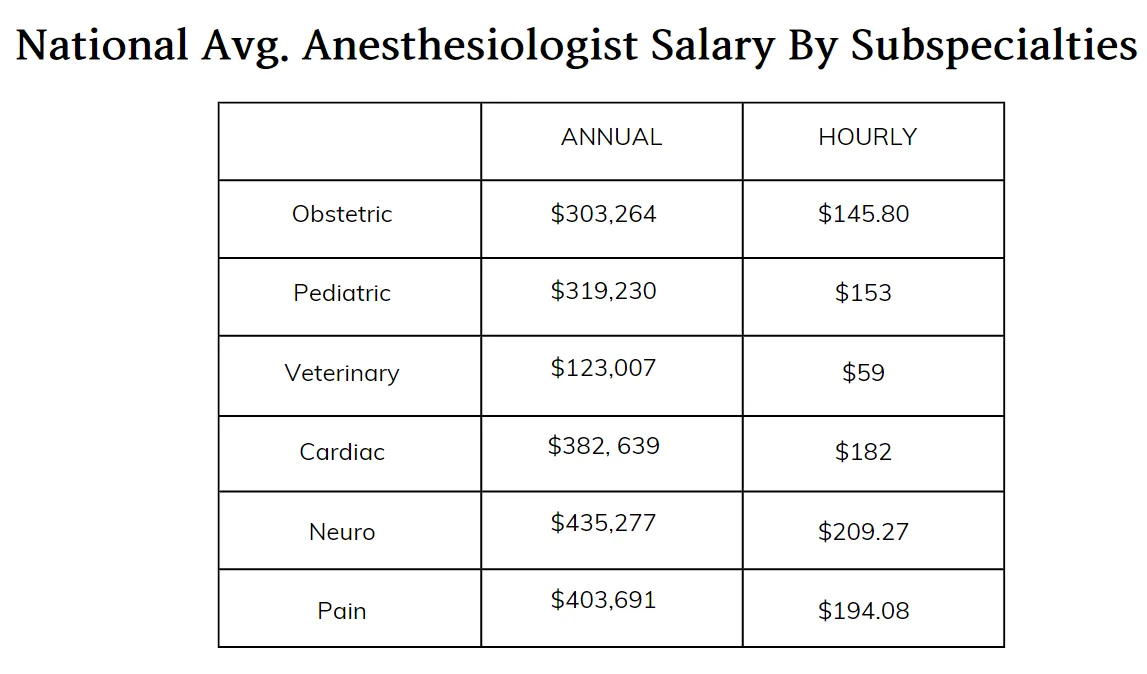The Compensation Tapestry: Pain Management Anesthesiologist

Author: Tyesia Hunter
The Art of Alleviation: Uncovering the Compensation Landscape for Pain Management Anesthesiologists
Introduction to Pain Management Anesthesiologist Salary
The Quest for Financial Comfort in a Fulfilling Medical Career
Imagine this: You're an ambitious medical student, dedicated to alleviating the suffering of those grappling with chronic pain. The field of pain medicine is your calling, and becoming a pain management anesthesiologist is your dream.
But aside from the noble desire to heal others, financial stability also plays a crucial role in our lives. It's important to explore the intricacies of compensation within the realm of pain medicine specialization so that you can make informed decisions about your career trajectory.
Understanding Compensation for Impactful Healers
Compensation in the medical field has always been a subject of curiosity and intrigue. The pursuit of knowledge, skill refinement, and tireless dedication deserves recognition both in terms of the lives saved and tangible remuneration.
Understanding how salaries are determined within the subfield of pain management anesthesiology allows you to navigate this complex landscape with confidence. Money matters, whether we like it or not.
It affects our lifestyle choices, financial independence, and overall well-being. By unraveling the various factors that contribute to pain management anesthesiologists' salaries, we can appreciate how their compensation aligns with their expertise and commitment.
A Glimpse into the Role of a Pain Management Anesthesiologist
Before we delve further into understanding salary structures within this specialization, let's take a closer look at what it means to be a pain management anesthesiologist. Pain management anesthesiologists are highly skilled medical professionals who focus on assessing and treating acute or chronic pain conditions. Collaborating with multidisciplinary teams, they employ advanced interventional techniques such as nerve blocks or spinal cord stimulation to mitigate patients' discomfort.
Their involvement extends beyond procedural excellence; they are compassionate advocates for patients, employing a holistic approach to address physical, emotional, and psychological aspects of pain management. These dedicated healers interact with individuals from diverse backgrounds, establishing trust and rapport to ensure optimal care.
By understanding the role of pain management anesthesiologists and appreciating the significance of financial stability in their careers, we can embark on an enlightening journey through the intricacies of compensation in pain medicine specialization. So, let's delve deeper into the factors that influence salaries within this field.
Exploring the Factors Influencing Salary in Pain Medicine Specialization
Education and Training Requirements: Building the Foundation
When it comes to pursuing a career as a pain management anesthesiologist, education is paramount. It all begins with obtaining an undergraduate degree, usually in a science-related field such as biology or chemistry. This solid foundation in the sciences helps aspiring professionals navigate the rigorous journey ahead.
Once armed with their undergraduate degree, aspiring pain management anesthesiologists must then complete medical school. Medical school is a grueling yet rewarding experience that typically lasts four years.
During this time, students delve deeper into subjects like anatomy, pharmacology, and physiology - knowledge that will form the bedrock of their future practice. After completing medical school, the next step is to embark on an anesthesiology residency program.
This rigorous training typically spans around four years and provides thorough clinical experience in various areas of anesthesia practice. Residents work closely with experienced mentors, honing their skills in patient care and refining their understanding of anesthesia techniques.
Experience and Expertise: The Path to Mastery
While education sets the stage for success, it's through experience that pain management anesthesiologists truly master their craft. Years of dedicated practice can significantly impact salary levels within this specialization.
As pain management anesthesiologists accumulate experience treating patients suffering from chronic pain conditions or post-surgical discomforts, they gain valuable insights into effective interventions and innovative treatments. Years spent refining techniques for administering regional nerve blocks or implanting spinal cord stimulators develop expertise sought after by employers.

Specialized skills and certifications are another factor that determines salary potential. Professionals who invest time and effort to become proficient in advanced procedures like ultrasound-guided nerve blocks or radiofrequency ablation for chronic pain management often command higher salaries due to their specialized expertise.
Geographic Location and Practice Setting: Where You Work Matters
The compensation landscape of pain management anesthesiology can vary significantly based on the geographic location and practice setting. Salaries are influenced by regional demand, cost of living, and other economic factors.
For instance, metropolitan areas with a high demand for pain management services may offer higher salaries to attract qualified professionals. Additionally, regions experiencing an aging population or increased prevalence of chronic pain conditions may have a greater need for pain management anesthesiologists, leading to more competitive compensation packages.

Practice setting also plays a significant role. Pain management anesthesiologists employed in private practices often have more control over their income potential through patient volume and billing practices.
On the other hand, academic or hospital-based employment may offer stability and benefits but potentially come with a more standardized compensation structure. Several factors influence the salary levels of pain management anesthesiologists.
Education and training lay the foundation for success in this specialization. Experience and expertise gained through years of practice enhance earning potential.

Furthermore, geographic location and practice setting contribute to variances in compensation due to regional demand and cost of living considerations. By understanding these factors, aspiring professionals can navigate their career path with greater insight into their potential salary prospects within the field of pain medicine specialization.
Understanding Compensation Structures for Pain Management Anesthesiologists
Base Salary vs Additional Income Sources
When it comes to compensation, pain management anesthesiologists receive a base salary, which serves as the foundation of their earnings. This base salary is typically determined by factors such as experience, education, and geographic location. However, it's important to note that a significant portion of their income comes from additional income sources.

Differentiating between base salary, bonuses, incentives, and benefits
In addition to the base salary, pain management anesthesiologists have the opportunity to earn bonuses and incentives based on various performance metrics.
These bonuses can be tied to factors such as patient satisfaction scores, productivity levels, or other measurable outcomes. Furthermore, they may also receive benefits like health insurance coverage, retirement plans with matching contributions from employers, paid time off for vacation, and continuing education opportunities.
Opportunities for additional income through research, teaching, or consulting
Pain management anesthesiologists also have avenues for additional income outside of their clinical practice. Many engage in research activities where they contribute to medical knowledge through conducting studies or participating in clinical trials.
Teaching is another option where they can educate medical students or residents through academic appointments at universities or teaching hospitals. Moreover, some pain management anesthesiologists choose to provide consulting services to pharmaceutical companies or medical device manufacturers.
Career Advancement Opportunities
Opportunities for promotion within the field
Within the field of pain medicine specialization as an anesthesiologist, there are several avenues for career advancement. Some pain management anesthesiologists pursue leadership roles within their organizations by taking on administrative positions such as department chair or medical directorship.
Others may choose to focus on academic pursuits and become involved in research institutions as principal investigators or department heads. Additionally, there are also opportunities to become involved in professional organizations and hold influential positions that can shape the field's direction.
Potential salary
The potential salary of a pain management anesthesiologist can vary widely based on experience, expertise, geographic location, and practice setting. On average, according to industry reports, pain management anesthesiologists earn a substantial income that falls within the range of $300,000 to $500,000 annually.

However, it's important to note that with additional experience and specialization in specific areas of pain medicine such as interventional procedures or palliative care, these figures can increase significantly.
Conclusion
The compensation structures for pain management anesthesiologists are multi-faceted and offer various opportunities for financial growth. Base salaries provide a stable foundation while bonuses and incentives reward exceptional performance. The chance to engage in research, teaching, or consulting activities not only adds diversity to their income sources but also contributes to professional development.
Additionally, career advancement opportunities allow pain management anesthesiologists to progress both clinically and academically. With the potential for lucrative earnings and the ability to make a difference in patients' lives through specialized care, this field offers a promising future for those embarking on a career as pain management anesthesiologists.


